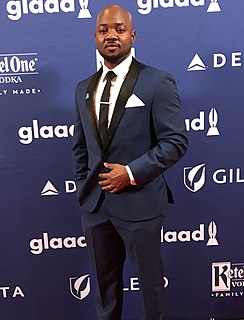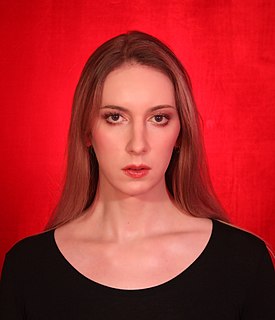A Quote by Dean Spade
Gender segregated shelters are inaccessible to many trans people, and trans women in particular are often forced to choose between going into a men's shelter where they face enormous danger, or remaining street homeless and facing the violence, harassment, arrest, and exposure risks of that.
Related Quotes
I am a trans woman. My sisters are trans women. We are not secrets. We are not shameful. We are worthy of respect, desire, and love. As there are many kinds of women, there are many kinds of men, and many men desire many kinds of women, trans women are amongst these women. And let’s be clear: Trans women are women.
One particular debate that I have seen play out again and again is whether trans people who have more traditional gender expressions or who "pass" more should be the ones who are represented. A recent advocacy guide focused on advocating around trans health care access produced by the largest trans advocacy organization in the US instructs readers that advocacy will be more successful if the message is delivered by people who pass as non-trans men and women.
A huge part of the American trans population that's often overlooked are trans teenagers. Many of them are homeless, and those are not the people who are necessarily going in for a custom suit. But that's one of the reasons why we were excited that we got to do a contest with HBO to sponsor a young person getting a suit made who might not have the means to do it on their own.
I think it's really important to champion stories from trans women and trans women of color. That demographic has gone unheard and unsupported for so long, and it's really the community that's struck the hardest by a lot of issues. I try to do a lot of work to champion trans feminine issues and stories, but that said, I do have a personal and deep investment in seeing trans masculine stories reflected in culture. It is a little disappointing to me that trans men and trans masculine people have not really been part of this media movement that we're experiencing right now.
We love trans women; all of us know that drag wouldn't be an art form without trans women. I know that, RuPaul knows that, everybody in the gay community knows that. Trans women have always been a part of and the face of drag. And I can guarantee trans women will always be a part of 'RuPaul's Drag Race.'
Many in the trans community are fed up with L.G.B.T. organizations that continue to erase trans identity or just give lip service to trans issues. We need our cisgender allies - gay and straight - to treat transgender lives as if they matter, and trans people need multiple seats at the tables in the organizations that say they're interested in L.G.B.T. equality; this absence has been painful since Stonewall.
































